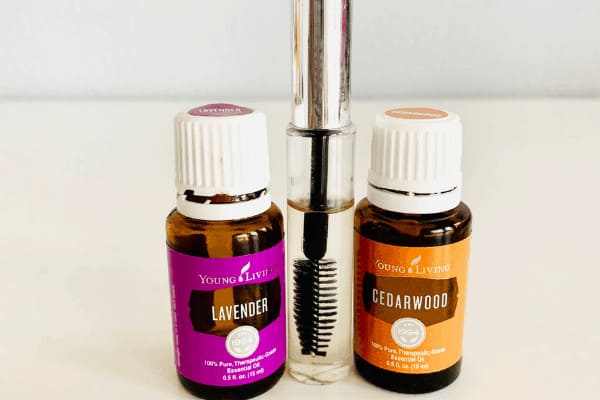Breast augmentation has become increasingly common in today’s society, with many women choosing to undergo the procedure for various reasons. In fact, a census reveals that nearly 5% of women in the United States of America have undergone this surgery.
While some may opt for it to enhance their beauty, especially in a place like Beverly Hills, famous for its celebrity allure and glamorous lifestyle, others may choose breast augmentation for reconstructive purposes, often after pregnancy or even following a battle with cancer. Whatever the motivation, it’s essential to prioritize your health both before and after the surgery, and this guide will walk you through everything you need to know about staying healthy during this transformative journey.
- Consult a Top Surgeon Before Surgery
The most critical first step is to consult with an experienced, board-certified surgeon. In a city like Beverly Hills, known for its high cost of living (more than 150% above the national average), it might be tempting to seek out affordable options, but here you must remember that breast augmentation is a major medical procedure. Cutting costs can sometimes lead to lower-quality results or even complications. It’s worth the investment to work with a reputable and experienced Beverly Hills breast augmentation surgeon who has a strong track record of successful surgeries. Take the time to research, read reviews, and schedule consultations to ensure you’re choosing the best professional for the job.
- Pre-Surgery Health Assessment
Before undergoing breast augmentation, it’s important to assess your overall health. Your surgeon will likely recommend a series of tests to ensure you’re in optimal condition for the procedure. These might include a physical exam, blood tests, and imaging studies, such as mammograms, especially if you have a family history of breast cancer. Make sure to disclose any pre-existing conditions, medications, or supplements you’re taking so that your surgeon can create the safest possible plan for your surgery. Being in good health going into the procedure will increase the chances of a successful surgery and even speed up the recovery process.
- Maintaining a Healthy Diet Pre-Surgery
Nutrition plays a vital role in both preparing your body for surgery and aiding in recovery afterward. Before your surgery, focus on consuming a nutrient-dense diet that includes plenty of lean proteins as well as fresh fruits and vegetables along with healthy fats. Protein is particularly important because it helps in cell repair, which will be crucial during the healing process. Besides knowing what to consume, you also need to know what not to eat. Avoid processed foods, alcohol, and excessive sugar, as they can increase inflammation and slow down healing. Also, drink plenty of water leading up to your surgery to keep your body in its best condition.
- Quit Smoking Before Surgery
If you’re a smoker, we hate to break it to you, but you’ll have to quit before surgery. Smoking can severely hinder your body’s ability to heal by restricting blood flow and weakening your immune system. It also increases the risk of complications such as infection and delayed wound healing. Most surgeons will advise that you stop smoking at least four to six weeks before your surgery to allow your body time to adjust. It’s also crucial to refrain from smoking during the recovery process to ensure that your body heals properly and that you avoid unnecessary risks.
- Physical Preparation: Fitness and Exercise
Staying physically active before surgery can really accelerate your recovery. Exercise strengthens your body and improves circulation, which helps to reduce the risks associated with surgery. Focus on moderate, low-impact exercises such as walking, swimming, or yoga in the weeks leading up to your procedure. However, avoid any intense or strenuous workouts right before surgery, as these could increase the risk of injury or fatigue. Your surgeon may give you specific guidelines for exercises to perform and those to avoid based on your individual needs.
- Mental Preparation: Reducing Stress
While physical preparation is essential, mental preparation is equally important before breast augmentation surgery. It’s quite normal to feel stressed or anxious before undergoing any major surgery, but it’s vital to manage these emotions to support your overall health. Stress can weaken your immune system and negatively impact your body’s ability to heal. Therefore, make sure you incorporate stress-reducing techniques into your daily routine. Practices such as meditation, deep breathing, and even light yoga can help you think positively and calm any nerves. Visualization techniques, where you imagine a successful surgery and smooth recovery, can also provide mental clarity.
- Post-Surgery Recovery Plan
Having a solid post-surgery recovery plan in place is critical to ensuring your body heals properly. Once the surgery is complete, your body will need time to recover, and rest is a big part of that. Make arrangements to have someone help you at home, particularly in the first few days after surgery when you’ll experience discomfort and limited mobility. Your surgeon will provide detailed post-surgery instructions that you should follow carefully, including any medications prescribed to manage pain and prevent infection. Avoid lifting heavy objects or engaging in strenuous activities, especially for the first few weeks. Following your surgeon’s recovery guidelines will minimize the risk of complications and promote a quicker healing process.
- Follow-Up Visits with Your Surgeon
Even after the surgery is completed, regular follow-up visits with your surgeon are necessary to ensure your recovery is progressing as expected. These checkups allow your surgeon to monitor how well you’re healing, assess the placement of your implants, and identify any potential complications early on. Your surgeon will also evaluate the aesthetic results and ensure that the implants are settling properly.
- Long-Term Health and Maintenance
Breast augmentation is not a one-time event; it requires long-term care to maintain both your health and the results. Regular breast exams should become part of your routine, particularly as implants need to be monitored for any potential complications over time, such as rupture or capsular contracture. Moreover, staying physically active, eating a balanced diet, and maintaining a healthy lifestyle will contribute to your overall well-being.
Breast augmentation is a major decision that goes beyond cosmetic transformation. It requires a commitment to maintaining your health before, during, and after the surgery. A positive outcome depends on the attention and care you give your body throughout this journey, ensuring you enjoy the results and remain healthy for years to come.





